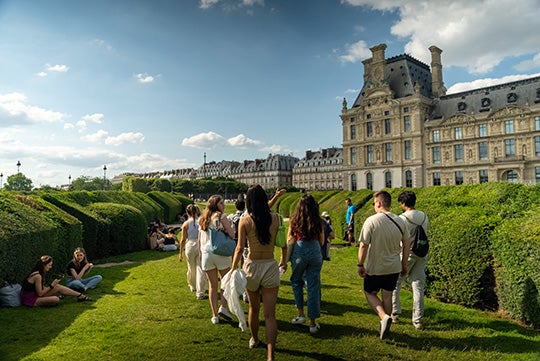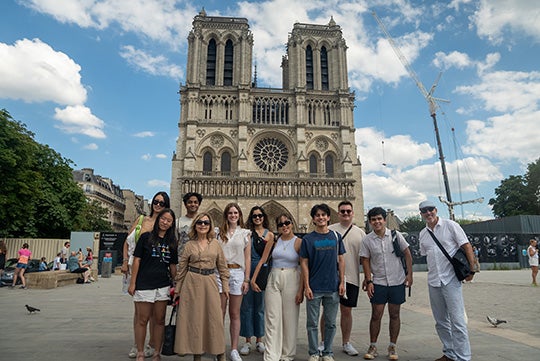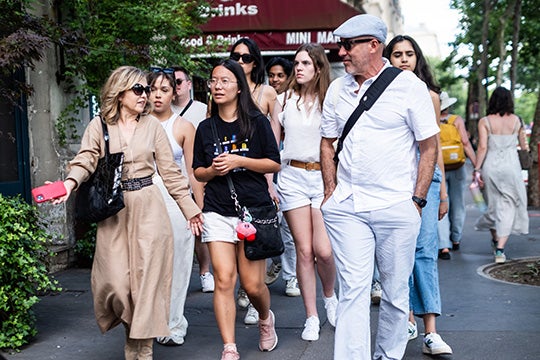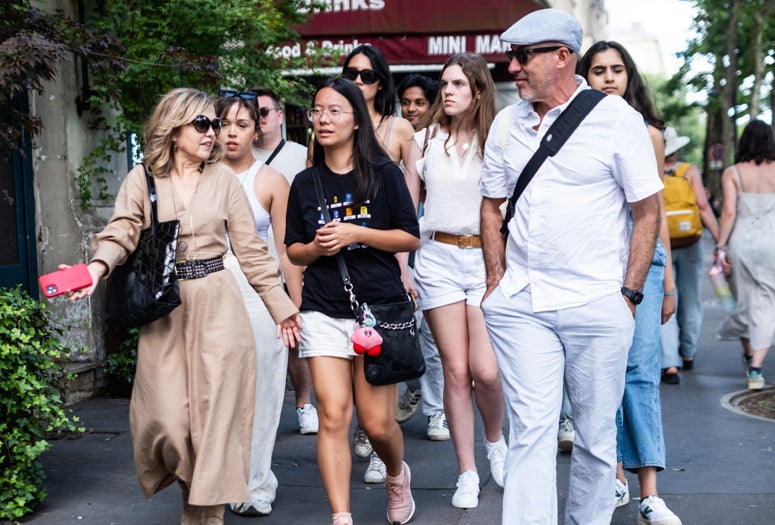This summer, Rice University brought back the innovative Unlearning Paris course at its Rice Global Paris Center, providing students an opportunity to deconstruct and critically analyze the historic city of Paris. Led by Fabiola López-Durán and Luis Duno-Gottberg, the three-week summer school intensive encourages students to “unlearn” the traditional, often idealized approach to understanding Paris.

“We’re trying to view the city not only through its romanticized form as the beautiful city of baguettes and wine but rather understanding the negative aspects as well, like the history of colonization and oppression that still exists to some degree today,” said Nitin Reganti, a Rice senior double-majoring in art history and chemical engineering.
Drawing inspiration from Swati Chattopadhyay’s 2012 book “Unlearning The City: Infrastructure in a New Optical Field,” the course examines Paris as a site of contentious memories. It explores how the city has been shaped by the control of land, resources and bodies and investigates what is remembered and honored versus what is erased and forgotten.
“Unlearning Paris is an initiative to learn about the city from its transnational, trans-Mediterranean, trans-Atlantic role, since the history of modernism is always a transnational history,” said López-Durán, associate professor of art history. “We are looking at the city as a composed environment made of multiple layers of multiple histories, some of them that have been silenced or ignored. So we are trying to fill those voids in order to have a more complete understanding of the city.”

One of the ways the course does that is by walking the city as López-Durán and Duno-Gottberg highlight the complex histories of what appears mundane on the surface.
“This is radical pedagogics,” said Duno-Gottberg, the Lee Hage Jamail Professor of Latin American Studies and professor of modern and classical literatures and cultures. “Everything comes into a new light when we ‘unlearn the city’ ... why certain populations live in certain neighborhoods; who has ‘the right to the city’; how memory becomes inscribed in the urban space … all of these we ponder as we walk around and think, for example, about monuments that have been brought up and down, built and rebuilt, to tell different angles of history.”
Located in the Marais district, the Paris Center is Rice’s first international campus. In its first year of full programming , it has become a hub for teaching, learning and research, bringing together participants from around the globe. The center supports research collaborations, undergraduate and graduate immersions and international conferences, partnering with local institutions such as Université Paris Sciences & Lettres .

“We’re really looking at the history of Paris and breaking it down, really going into the cracks and seeing the histories that are hidden and then exploring how that manifests in monuments and works of art on the street,” said senior economics major Olivia Finch. “I definitely understand a lot of the historical nuances more than I did coming into this. I have French ancestry, so I’ve always been decently aware of the city’s history, but we’re really starting to break into stories that I hadn’t heard of or had only heard of on surface level. So it’s been great to explore those narratives.”
Fostering a deeper, more nuanced understanding of one of the world’s most iconic cities, “Unlearning Paris” is furthering Rice Global’s commitment to innovative, globally engaged education.
“It’s a revolutionary way of looking at urban spaces that will allow us to give a more critical perspective of a fascinating city like Paris,” said López-Durán.

